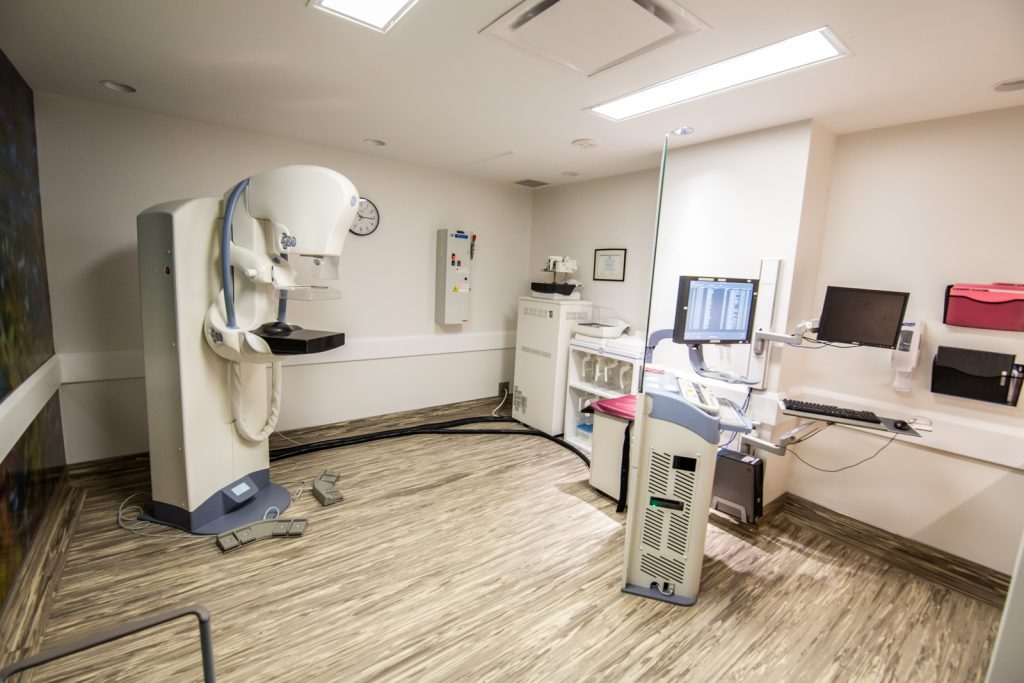
Undetected cancer in community increased during COVID-19: screening is essential
HAMILTON, ON – As we reflect on the one year anniversary of the COVID-19 pandemic, the Regional Cancer Program at Hamilton Health Sciences (HHS) has observed a significant decrease in the number of people completing cancer screening tests over the last year. Experts believe that this drop in cancer screening has led to a more concerning statistic – an increase in undiagnosed, and therefore untreated, cancers affecting those in the region.
“Unfortunately, cancer has most likely not decreased this last year. Even though we are finding and treating less of it right now, I am very concerned that because this pandemic has led to less cancer screening, there are folks out there who have early stage cancers and pre-cancers that we normally would have found, treated and cured – or even prevented,” says Dr. Meghan Davis, Family Physician and Regional Primary Care Lead for the Hamilton Niagara Haldimand Brant region. “But it’s not too late – the sooner the better is statistically a good motto when it comes to finding cancer.”
April is Cancer Awareness Month and the Regional Cancer Program is taking the opportunity to emphasize how important it is to attend your scheduled cancer screening appointment or book an appointment to get screened if you are due. Delaying or missing an appointment, test or procedure may have a negative impact on your health. The bottom line is that regular cancer screening is essential.
There were 32,000 mammograms, 38,000 pap tests and 29,000 fewer colorectal cancer poop tests completed in the region in 2020 compared to 2019. This equates to possibly hundreds of undetected cancers. For the province, this number is in the thousands.
“We understand there may be hesitancy to attend appointments during COVID-19, but these screenings and tests are essential,” adds Dr. Davis. “Cancer screening tests help detect cancer early when you are feeling well and before you start to feel symptoms. Cancer screening is important because cancer is easier to treat when it is found early.”
There are three free cancer screening programs for breast, cervical and colorectal cancers in Ontario:
- Breast screening with a mammogram is usually recommended every two years for individuals 50-74 years through the Ontario Breast Screening Program
- Cervical screening with a pap test is usually recommended every three years for individuals 25-69 years through the Ontario Cervical Screening Program
- Colorectal cancer screening with a do-at-home fecal immunochemical test (FIT) or ‘poop test’ is usually recommended every two years for men and women 50-74 years through the ColonCancerCheck Program
Recommendations may differ based on an individual’s personal and family health histories, so it is recommended that you speak with your primary care provider about what tests are right for you. There is also more information about each cancer screening test and how to arrange an appointment on the Regional Cancer Program website at www.hnhbscreenforlife.ca.
Denise Tomasin of Stoney Creek knows this, and made sure to attend her mammogram during the pandemic. “I know that it is important for me to continue to attend medical appointments like cancer screening – COVID is not going to stop me from making my health a priority. If you can go to the grocery store, you can get screened. The appointment only took about 15 minutes and I felt safe.”
Clinics and hospitals have measures in place to make sure that your visit is safe, including hand washing, wearing masks, physical distancing, asking questions about COVID-19 symptoms before entry, and increased cleaning of surfaces between patients.
“Thankfully my screening was clear/negative,” adds Tomasin. “It’s one less thing to worry about during this time.”
“Ontario Health (Cancer Care Ontario) has resumed their correspondence letter campaign that invites eligible people to begin screening when they are eligible and repeat their screening when they are due again. Keep an eye out for communication in your mailbox,” says Riley Crotta, Manager, Regional Cancer Programs. “This acts as a friendly reminder to keep your health a priority.”
“Many of my patients rely on these letters to keep their appointments top of mind,” adds Dr. Davis. “Even if you have not received a letter, be sure to keep the lines of communication open with your primary care provider to stay up-to-date with your cancer screening.”
– 30 –
For more information, please contact:
Wendy Stewart
Communications & Public Affairs
Hamilton Health Sciences
stewartwen@hhsc.ca
